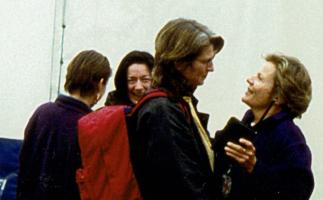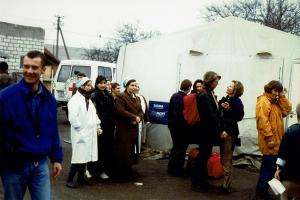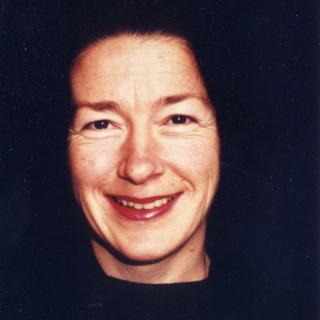Ingebjørg Foss was born on 3 March 1954 in Gjøvik, Norway. She went to high school from 1969 to 1973 in the city of Molde, where she also worked part-time as a social worker on a psychiatric ward. She then studied political science for two years at Oppland District College in Lillehammer. In 1975 Ingebjørg moved to Oslo and attended Ullevål Nursing School, qualifying three years later. Her first job as a nurse was in the emergency unit of Ullevål General Hospital. She also worked part-time as a nurse in Oslo Prison.
From 1982 to 1984 Ingebjørg studied at Oslo’s School of Anaesthesiology, after which she became lead nurse of the Department of Anaesthesiology at the Norwegian Radium Hospital (NRH). She spent several years at the NRH, taking on the role of adviser on nursing procedures and later becoming head nurse of the Department of Anaesthesiology and the intensive care unit.
Ingebjørg believed actions spoke louder than words. Big-hearted and brave, she led her life according to her own moral code and never looked away in the face of injustice. Invariably, this meant standing up for – and alongside – the weakest and the poorest, those who were suffering or in need of support, wherever she found them. Her dedication to others was almost boundless. Ingebjørg was a loyal and supportive friend, always ready to help out or step in with advice. She had a playful and sharp sense of humour and was very fond of the theatre. She was herself a member of a theatre group that performed pieces of Bertolt Brecht.
In 1989 Ingebjørg left Norway to join the Peace Corps in Nicaragua, where she would spend the next three years. In 1990, she joined the National Programme of Oncology as an adviser, based in the capital Managua. The position was funded by the Norwegian Agency for Development Cooperation (Norad). The following year she worked as an anaesthesiology nurse in the Regional Hospital of Juigalpa, around 130 kilometres east of Managua, in another Norad-funded position.
Ingebjørg returned to Norway in 1992 to take up the position of vice-director of nursing at the NRH. In 1993 she spent a year studying environment and development at the University of Oslo. She also studied at the School of Operating Theatre Nursing (1993–1995).
Ingebjørg’s first assignment with the ICRC was in the spring of 1995 as surgical ward nurse in Quetta, Pakistan. She was seconded from the Norwegian Red Cross. Even though she was only there for a month, she adapted quickly and smoothly to life with the ICRC. Ingebjørg’s second ICRC assignment, in early December 1996, took her to the Russian republic of Chechnya, where she was also employed as a surgical ward nurse. She was based in the village of Novye Atagi, some 20 kilometres south-west of the capital Grozny, where the ICRC had opened a field hospital.
In the early hours of 17 December 1996, six delegates, including 42-year-old Ingebjørg, were shot dead by masked gunmen in their rooms in the ICRC residence next to the field hospital. Like Ingebjørg, four other murdered delegates had been seconded to the ICRC from National Red Cross Societies: Gunnhild Myklebust, 50, also with the Norwegian Red Cross; Hans Elkerbout, 47, a construction manager with the Netherlands Red Cross; Nancy Malloy, 51, a medical administrator with the Canadian Red Cross; and Sheryl Thayer, 40, a nurse with the New Zealand Red Cross. The sixth delegate was head nurse Fernanda Calado, 49, from Spain, who had worked for many years with the ICRC. Another delegate, Christophe Hensch, a Swiss national in charge of the ICRC's Novye Atagi office, was shot and survived.
Jean de Courten, the ICRC’s director of operations, called the attack a cowardly, “deliberate assassination”. Following the tragedy, the ICRC evacuated its remaining 14 delegates from Novye Atagi. Local medical staff continued to care for patients at the hospital. Speaking at a memorial ceremony at Saint-Pierre Cathedral, Geneva, just days after the attack, ICRC President Cornelio Sommaruga said: “All six were dedicated to the ideal of solidarity with the victims of the Chechen conflict. They were fulfilling with exemplary enthusiasm the original mission of the Red Cross – to care for wounded – and they were doing it in the same spirit as the women of Solferino: ‘Tutti fratelli’ [We are all brothers].”
Ingebjørg was someone who stayed true to her ideals and her convictions, who was never afraid to act and who inevitably stepped forwards when others might have hesitated. Compassionate to the core, she was forever on the side of the most vulnerable.


